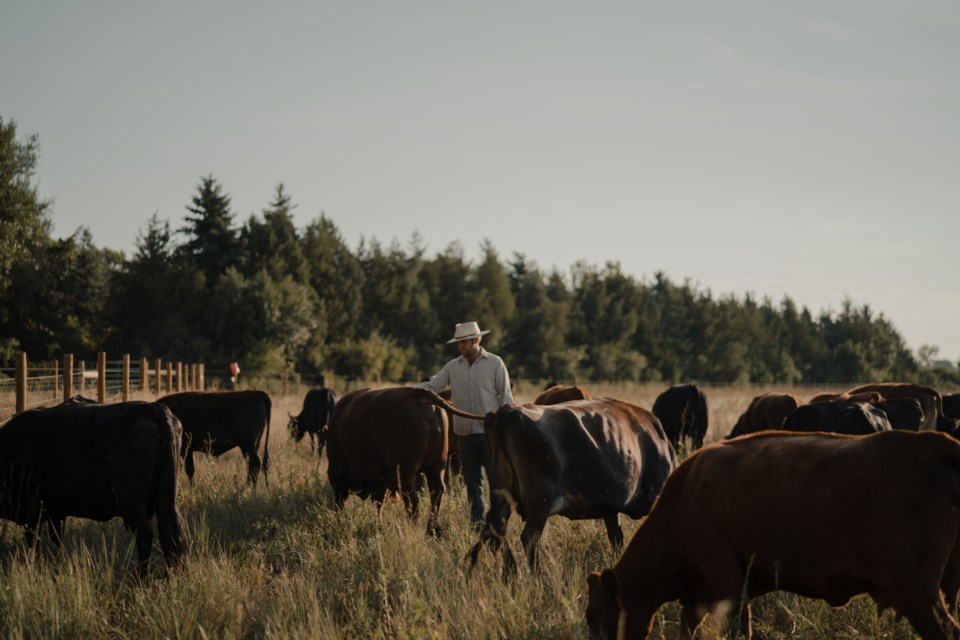Grama Grass and Livestock is a local cattle business trying to improve grassland health.
Owner Andy Breiter is a first generation farmer who grew up outside of Chicago. He always had a passion for food, learning different parts of the industry before finding his passion in farming and the land.
Breiter started Grama Grass and Livestock in 2020 with the goal to bring beef back to native prairies. The company focuses on a holistic approach to regenerate landscapes.
“I saw Boulder County as a really good opportunity to use my two passions — a love of land and the connection with the food — to bring that through,” Breiter said.
He has about 40 cattle who are moved daily to different pastures. This year, there are six public and private land parcels throughout Boulder County where the cattle graze, and Grama Grass works with property owners to achieve their land management goals.
“We have a native ecosystem of grasslands around here and you need ruminant animals, or cattle, to digest those grasses and turn that into meat,” Breiter said. “What that does for the land is it actually allows the grass to be more lush and to be better able to grow instead of becoming old and decadent.”
The holistic management practices are unique but not unheard of with a growing movement towards this type of grazing.
“The unique factor for us is taking that to this rural-urban interface,” Breiter said. “Not many folks are bringing this to these more or less forgotten pracels because they don’t fit the contexts of larger scale ranches. It’s hard work to move animals from property to property.”
Grama Grass approaches land management on a large scale, using a mosaic of city, county and private lands. Risks of accidents and the added cost of mileage are factors that may prevent operations from this rotational approach, but Breiter thinks it's important to bring management to these overlooked parcels.
Grama Grass tries to bring this holistic approach to the consumer when selling the beef.
“This is a whole animal,” Breiter said. “There are a small amount of organs with it. There’s ribeyes, which is a small amount. There’s more roast. It’s important to invest in the whole animal, just like you invest in your land.”
There’s also the challenge of balancing a profitable price for beef with wanting the food to be accessible to all. Recently, Grama Grass sold beef to a nonprofit at a discounted price to do just that.
Breiter emphasized that community and collaboration are a huge part of his business. Grama Grass works with other farmers, local governments and neighbors as part of its operation.
As climate change further tolls the Boulder County landscape, Grama Grass is listening to the land as cattle graze to balance those variable needs. That is worth something to Breiter, too.
“While I talk about selling beef and all these other things, how do you do all that while still valuing the land?” he said. “Something you won’t necessarily get money for, but still has this tremendous value.”
Learn more about Grama Grass at gramagrasslivestock.com/.



